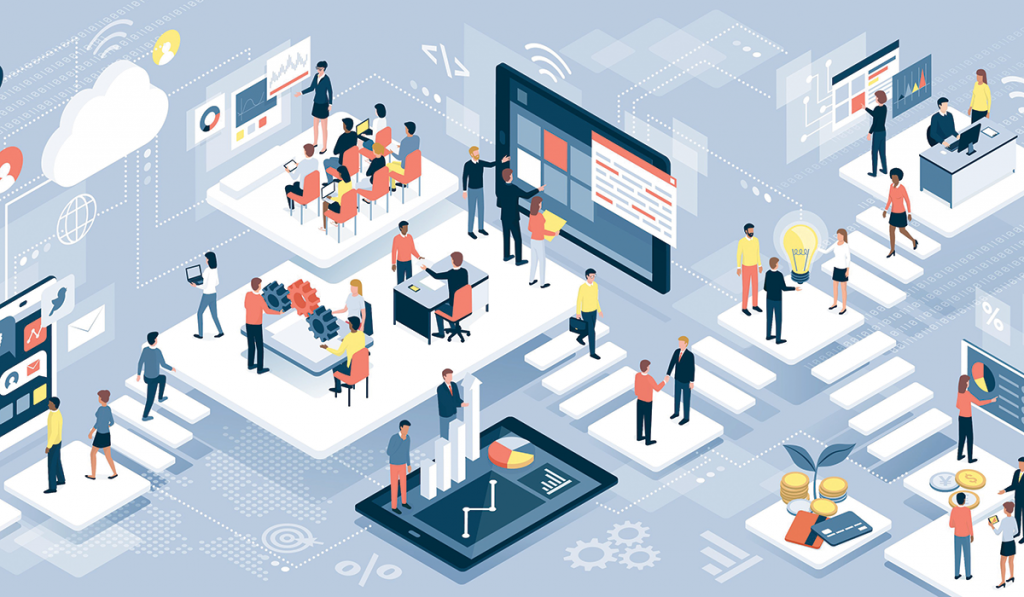 The future of work is dynamic. One would need an entire book to describe the many forces affecting trends in the workplace now and in the years to come. Unfortunately, by the time that book made it to print, its contents would be out of date.
The future of work is dynamic. One would need an entire book to describe the many forces affecting trends in the workplace now and in the years to come. Unfortunately, by the time that book made it to print, its contents would be out of date.
So rapid are the forces of change, many organizations in the United States are still reckoning with the effects caused by the COVID-19 pandemic and the Great Resignation. The proliferation of remote work, and a class of highly skilled employees increasingly empowered to seek better jobs with better pay and benefits, still echo among the top workplace trends in store for 2023. For C-suite and HR leaders, the challenges of tomorrow will evolve quickly from the challenges of today.
Here are five workplace trends that will take center stage in 2023:
1. Addressing the global talent shortage: Korn Ferry estimates that the global human talent shortage will reach 85 million people by 2030. Private organizations and governments will be challenged like never before to help find ways to accelerate their development processes, and build expanded talent acquisition capabilities, to meet this demand. Companies will need strategies to incentivize their employees to stay — using long-term incentives, benefits and flexible workplace policies — to stem the outflow of employees who possess in-demand skills. Their options will expand significantly amid the coming competition for talent. Companies will also be challenged to find ways to automate work that is more tactical or transactional, looking to AI and robotics to fill gaps.
2. The emergence of the agile workplace: One solution to address the global talent shortage includes becoming more fluid and agile with regard to acquiring and employing talent. Many companies are moving toward a borderless talent acquisition strategy in which leaders hire based on skill sets regardless of where the employee is located (often creating additional legal entities or utilizing payroll services companies). Another popular strategy is the flexible work environment, in which in-person, hybrid and remote work combine to meet the needs of the business with the right talent. Google, Meta, Salesforce and AirBnb are among the businesses that have stated they will allow people to remain remote if they choose, and are helping their teams find ways of working in a fully distributed model. Google provides “distributed work playbooks” for leaders, managers, distributed employees and their buddies to ensure they are “getting connected, being connected and feeling connected” to their overall workplace. Some companies are moving to an office-less model to help go remote-only. GitLab, as an example, has 1,500 employees in more than 65 countries with no company-owned offices.
3. The emergence of the flexible workforce: The demands of work will require working across traditional departmental barriers. Employees will be asked to take on projects based on skills that transcend traditionally defined roles. The World Economic Forum suggests investing in “human” skills ― creativity, originality and initiative, critical thinking, persuasion and negotiation, emotional intelligence, social influence ― to help navigate this emerging future. McKinsey’s survey of 18,000 people in 15 countries further defined skills needed in the future world of work: cognitive skills like mental flexibility; interpersonal skills like inclusiveness and conflict resolution; digital skills like programming literacy and data analysis; and self-leadership skills like self-motivation, grit and persistence.
4. Physical and mental well-being gain importance: Talent shortages, supply-chain difficulties, business uncertainty and war are among the global forces exacerbating the demand on today’s employees. The risk of burnout will remain high. Recent studies by Gallup and ThriveMyWay revealed that 50–60% of employees say they are burned out, for reasons including needing to be available 24/7 for their employers, lack of support by their managers (many of whom may also be overwhelmed), unreasonable time constraints and other reasons. A Korn Ferry study indicated 89% of professionals say they have experienced burnout in the last two years, and 80% of that group say they’re more burned out now than at the start of the pandemic. Employers will need to invest in a series of countermeasures: improved workforce planning to better predict what skills/roles and how many roles are needed, more generous hours and/or flexible schedules (including extra time off to recharge), tools and techniques for mental health and well-being, and expanding support for groups that may have left the workforce in an effort to woo them back. Companies will need to help improve their frequency of communication, appeal to and support employees’ common social interests, and determine ways for in-person and remote staff to connect more frequently to drive a sense of integration and belonging. Many companies are already making moves in this direction. Fortune noted that 66% of companies are planning to or have made changes for mental well-being in 2022.
5. The importance of sustainability: Creating a sustainable future is a trending topic as nations and private organizations pursue measures to limit global warming and address the climate crisis. Even institutional investors such as Blackrock are making Climate one of their key issues in evaluating their investment choices and voting decisions for companies. This will be further highlighted as Gen Z (born from 1997–2012) comes into the workforce. Addressing Climate change is the No. 1 concern among this age group, according to a recent Deloitte survey. Nearly half — 49% ― state their personal ethics and beliefs have played a role in their career choices. Companies won’t just push forward on sustainability because it’s the right thing to do, or a good business practice, but because it will be required to attract and retain the talent they need for the future.
 Jesse Meschuk is a career and human resources expert, and a senior advisor with Exequity. Meschuk has more than 20 years of consulting and human resources experience and has worked across a wide variety of industries, including technology, entertainment, gaming, retail, hospitality and sports. Meschuk’s work has spanned across the Americas, Europe and Asia.
Jesse Meschuk is a career and human resources expert, and a senior advisor with Exequity. Meschuk has more than 20 years of consulting and human resources experience and has worked across a wide variety of industries, including technology, entertainment, gaming, retail, hospitality and sports. Meschuk’s work has spanned across the Americas, Europe and Asia.












